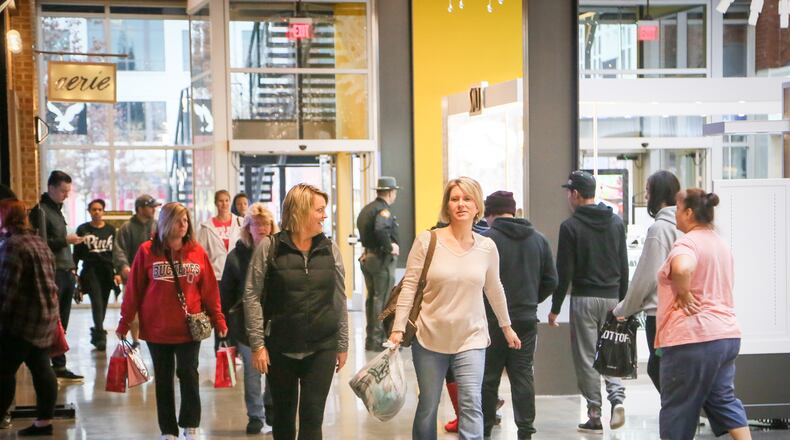“I think what the pandemic has done, it has put some uncertainty in the minds of some consumers especially those who may be immuno-depressed or fit in a category where they may be high risk and they may be doing their shopping online, so the retailers are giving them the opportunity to begin their shopping early,” said president and CEO of the Ohio Council of Retail Merchants Gordon Gough.
Holiday sales predicted to increase
The pandemic has left millions without jobs causing a shift in the economy. However, in its newly released holiday sales forecast, Big Four accounting firm Deloitte suggests that consumers will splurge a little this season, but less than previous years.
Deloitte estimated 2020 U.S. holiday retail sales between November and January will be $1.147 billion and $1.152 billion, an 1% to 1.5% increase from last year. On the flip side, Deloitte expects holiday e-commerce sales to surge by 25% to 35%, amounting to between $182 billion and $196 billion. That’s compared a 14.7% increase in 2019, with sales reaching $145 billion.
“I think there’s just so many variables in place with the economy. That’s a month and a half out unemployment could spike again, whether or not people get stimulus checks could impact people’s willingness and ability to shop for Christmas,” said University of Dayton marketing professor Riley Dugan.
Prior to the virus, online shopping has been the biggest threat to in-store sales and coupled with the risk of the virus, it now poses an even bigger threat. Each year shoppers have spent less and less during Black Friday and opted for deals on Cyber Monday just three days later.
“I can see the long-term trends, trending away from Black Friday shopping because I just think that the long-term trends in retail are declining. You see closures of anchor stores and malls and that’s reflective I think in the fact that people are shopping online more, so Black Friday, in person retail shopping as an extension I think would be decreasing,” Dugan said.
Large retailers start early
Some big box retailers started their online sales last week to give customers a chance to get holiday presents early. Walmart rolled back its prices and begin its Big Save Event through last Thursday. The five-day sales event included discounts on electronics, toys, and home essentials that mimic Black Friday pricing.
Target announced they too will offer sales early this year. The big-box store will also offer Black Friday pricing on items throughout the entire month of November and extend its price match guarantee policy From Nov. 1 to Dec. 24. The policy gives customers a price adjustment on any item advertised as a “Black Friday deal” either instore or online.
Amazon’s Prime Day was held last week, during which only Prime members could access items for reduced prices. Some items include electronics at 33% off, home security camera systems, and up to 20% off furniture.
Holiday sales by the numbers
1% to 1.5%: Expected 2020 retail store sales increase
4.1%: 2019 retail store sales increase
25% to 35%: Expected 2020 online sales increase
14.7%: Online sales increase in 2019
About the Author

